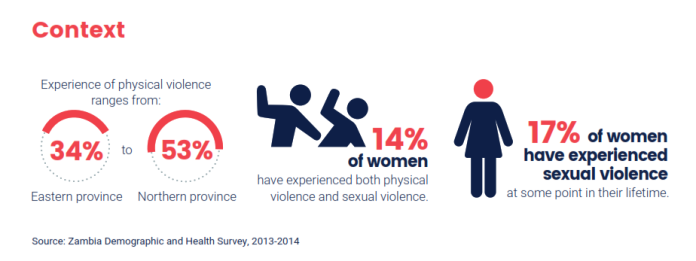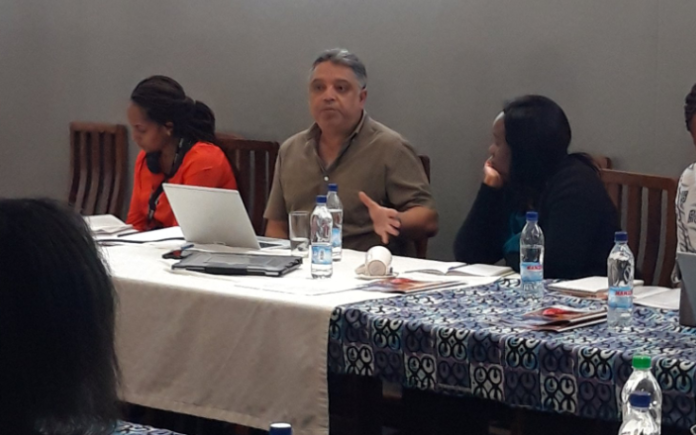Combatting gender based violence in Zambia
Terry Roopnaraine presented the findings from an evaluation of the STOP GBV Programme in Zambia
-
Date
June 2019
-
Area of expertiseCross-cutting themes
-
CountryZambia
-
KeywordGender, equality, and social inclusion
More than a third of all women and girls in Zambia have experienced physical violence in their lives, and 17% of women have experienced sexual violence. The country faces some of the highest rates of reported gender-based violence in the world.

Preventing and responding to gender-based violence is one of key priorities for the Government of Zambia. Helping to support its activities, UK’s Department for International Development and the United States Agency for International Development funded a six year Stamping Out and Preventing Gender-Based Violence (STOP GBV) Programme. Implemented between 2012 and 2018, the programme supported the efforts of three implementing partners in reducing gender-based violence at three different stages:
- Providing support services to GBV survivors
- Supporting behavioural change through community outreach to prevent and advocate against GBV
- Improving the quality and access to legal services for GBV survivors
We undertook a mixed method, theory based evaluation of the programme, reviewing systematic efforts invested towards reducing GBV across each stage of the programme.
During the evaluation, we collected qualitative data in six districts of Zambia, including Lusaka, Chongwe, Katete, Kafue, Choma, and Mumbwa, among both implementing stakeholders and community members. We also conducted high-level interviews among Government of Zambia personnel, donors, and development partners in Lusaka. This was complemented by a quantitative study carried out by our research partners Busara Centre for Behavioural Economics. The quantitative study employed innovative behavioural experiments to test hypotheses around the behaviour change campaign.

We joined an event hosted by DFID Zambia to present the results of our evaluation. Attendees included representatives from DFID Zambia, USAID, implementing partners, the European Union, UNDP, Irish Aid, and Swedish SIDA. The event culminated in a discussion around the evaluation learnings, and how these could be used to inform the STOP GBV successor programme, as well as provide a steer to GBV-related policies.
To help operationalise the evaluation findings, we are running a smaller technical workshop with the implementers of STOP GBV’s successor programme on 5 June. This session will scope concrete strategies for putting the evaluation findings into practice.
